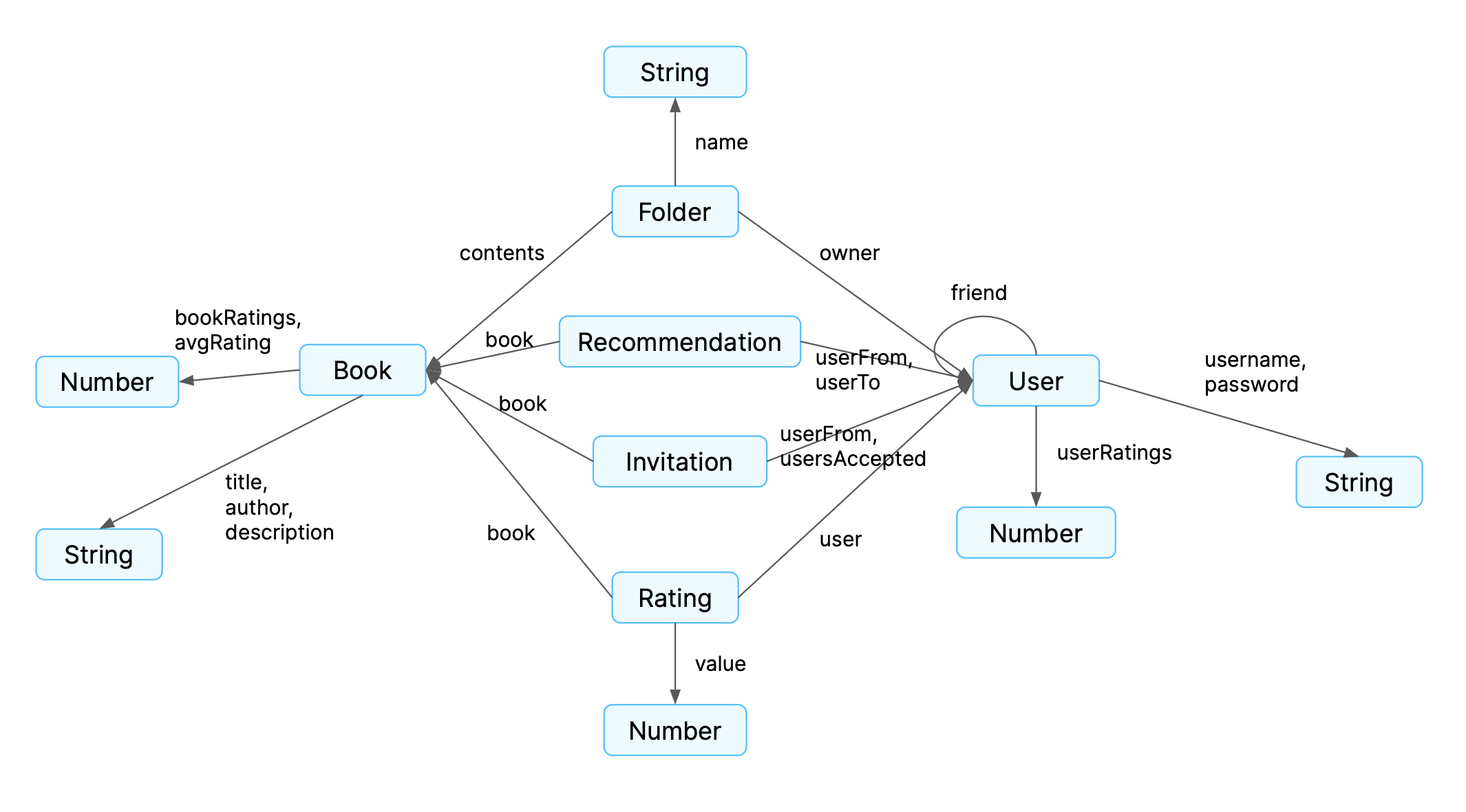Assignment 4 Beta
Abstract Data Models:
User
State:
- users: set User
- username, password: registered -> set String
Session [UserAccount]
State:
- active: set Session
- user: active -> one UserAccount
Friend [UserAccount]
State:
- friends: set Friend
- requests: set FriendRequest
- user1: UserAccount
- user2: UserAccount
- from: UserAccount
- to: UserAccount
- status: String
Book [UserAccount]
State:
- books: set Book
- title: Book -> one String
- author: Book -> one String
- description: Book -> one String
Folder [BookItem, UserAccount]
State:
- folders: set Folder
- name: String
- owner: UserAccount
- contents: set BookItem
Rating [BookItem, UserAccount]
State:
- ratings: set Rating
- book: BookItem
- user: UserAccount
- value: Number
Recommendation [BookItem, UserAccount]
State:
- recommendations: set Recommendation
- userFrom: UserAccount
- userTo: UserAccount
- book: bookItem
Invitation [BookItem, UserAccount]
State:
- invitations: set Invitation
- userFrom: UserAccount
- usersAccepted: set UserAccount
- book: BookItem
App definition:
app BookClub:
include User
include Session [User.User]
include Friend [User.User]
include Book [User.User]
include Folder [Book.Book, User.User]
include Rating [Book.Book, User.User]
include Recommendation [Book.Book, User.User]
include Invitation [Book.Book, User.User]
Data Modeling Diagram:

Website and code:
Deployed website: https://bookclub-one.vercel.app
Link to code: https://github.com/juliacamacho/bookclub
Design Reflection
I found that the process of creating my data model diagram greatly helped clarify my understanding of my concepts and helped me reorganize them more effectively. After realizing that I needed to link concrete types by their fields relating them to one another, rather than trying to link the concepts themselves to one another, I decided to update my concept states to reflect that. For instance, instead of the state of my Recommendation concept containing recommendations: User -> set Items, User, I changed it to recommendations: set Recommendation and added states of userFrom, userTo, and book. Additionally, I decided to simplify invitationsPosted and invitationsReceived in my Invitation concept to just invitations, which I could then query more specifically.
Furthermore, I realized that much of the information I was trying to represent as concepts and store across various states were rather just UI-related groupings. For example, I chose to remove my Profile concept because although it could potentially contain more user information beyond the state stored in User, I had mostly just been using it to redundantly store information related to Recommendations, Invitations, Folders, and Ratings. I improved my modularity by containing all of the book or user-related actions (updating the information about these aforementioned aspects) within the other concepts rather than trying to involve all of the other concepts within Book or User/Profile.